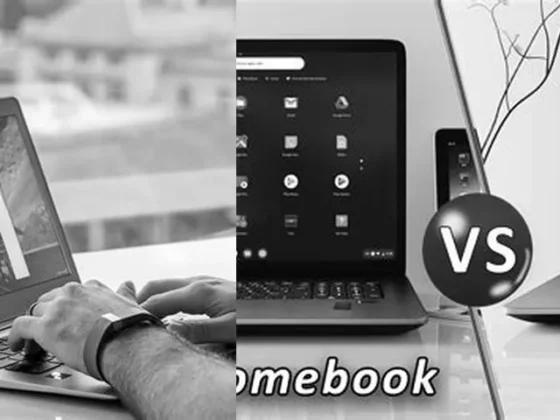Can All Chromebooks Use Android Apps: Are you a proud owner of a Chromebook, wondering if you can access all those amazing Android apps? Well, you’re in luck! In this article, we’ll dive into the world of Chromebook’s Android app support and answer the burning question: Can all Chromebooks use Android apps? Get ready to unlock the full potential of your Chromebook as we explore how to ensure compatibility and maximize your app experience. So, grab a cup of coffee and let’s embark on this exciting journey together!
Understanding Chromebook’s Android App Support
Chromebooks have evolved significantly since their inception, transitioning from being solely cloud-centric devices to versatile machines capable of running a myriad of applications. A pivotal feature that has enhanced the functionality of Chromebooks is their ability to support Android apps. But, as with any technology, certain limitations and prerequisites exist.
Compatibility Across Chrome OS Devices
The journey towards universal Android app support on Chromebooks has been gradual. As of the information available up to 2023, every Chrome OS device launched since 2019 boasts support for Android apps. This is a significant stride forward, considering that Chromebooks were initially designed as gateways to Google’s suite of web applications.
However, for those with devices released in 2018 or earlier, the situation is a bit more nuanced. Android app support for these older devices is determined on a per-device basis. The compatibility list has been expanding over time, so many of these Chromebooks have since received updates that grant them access to Android apps.
Google Play Store: The Gateway to Android Apps
Central to this evolution is the integration of the Google Play Store with ChromeOS, which has enabled users to download and use Android apps directly on their Chromebooks. While this feature is available on many devices, it is particularly important to note that not all Chromebooks may have access to the Play Store, especially if they are being used in managed environments like schools or workplaces.
Can You Download All Android Apps on Chromebook?
With the Play Store now a staple on many Chromebooks, users can explore a vast array of Android apps to enhance their productivity, entertainment, and overall user experience. However, not all Android apps are compatible with Chromebooks. This incompatibility may be due to various factors, including app design, hardware requirements, or explicit decisions by developers to prevent their apps from being run on Chromebooks.
Why Some Android Apps Don’t Work on Chromebooks
Why would a developer prevent their app from being used on a Chromebook? Sometimes, it’s a matter of user experience. An app designed specifically for a smartphone’s touchscreen may not translate well to a Chromebook’s interface. Other times, an app may require hardware components, like certain sensors or cameras, that are not present on Chromebooks.
Building and Running Android Apps on ChromeOS
For developers and tech enthusiasts, Chromebooks offer an interesting platform. Not only can users run existing Android apps on their ChromeOS devices, but they can also build and run their own Android apps. This opens up a playground for experimentation and innovation, allowing developers to create apps that are optimized for the Chromebook experience.
Ensuring Android App Compatibility on Your Chromebook
For the average user, knowing whether a particular Android app will work on their Chromebook is key. The compatibility of apps can vary, and while the Google Play Store does a good job at filtering out incompatible apps, there are still scenarios where an app might not function as expected.
How to Check App Compatibility
To check if an app is compatible with your Chromebook, you can follow a simple process. First, access the Google Play Store from your device. If an app appears in the store and you’re able to download it, that’s a good initial sign of compatibility. However, the ultimate test is in the actual usage. Some apps may download but then fail to run correctly, or they may not be fully optimized for the Chromebook interface.
Maximizing Your Chromebook’s Android App Potential
Ensuring a Seamless Experience
Once you’ve established that your desired Android apps are compatible with your Chromebook, there are steps you can take to ensure a seamless experience. Adjusting settings within the apps to suit your device’s specifications, like screen size and input methods, can greatly enhance usability. Furthermore, keeping both your ChromeOS and the apps updated ensures you have the latest features and security patches.
Adapting Android Apps for Chromebook
For developers looking to optimize their Android apps for Chromebooks, a few key tweaks can make a world of difference. These include ensuring that the app can handle different input methods, such as keyboard and mouse, and adapting the user interface to larger screens. Developers should also consider the hardware limitations of some Chromebooks, which may lack certain sensors or features common in smartphones and tablets.
Troubleshooting Common Issues
If you encounter issues with Android apps on your Chromebook, there are several troubleshooting steps you can take. Clearing the app’s cache, checking for updates, or even reinstalling the app can resolve many common problems. Users should also be aware of the settings within ChromeOS that can affect app performance, like hardware acceleration or developer options.
Conclusion
Chromebooks have come a long way in terms of versatility and functionality, thanks in part to their support for Android apps. While nearly all Chromebooks released since 2019 have this capability, those with older models will need to check on a case-by-case basis. Even with access to the Google Play Store, not all apps will work perfectly, and it’s up to users and developers alike to navigate these waters. By understanding the limitations and taking steps to ensure compatibility, Chromebook users can unlock a wealth of apps to enhance their experience.
FAQ & Related Questions about Can All Chromebooks Use Android Apps?
Q: Can I download all Android apps on my Chromebook?
A: You can download and use Android apps on your Chromebook with the Google Play Store app. However, please note that currently, the Google Play Store is only available for some Chromebooks. If you use your Chromebook at work or school, you may not be able to add the Google Play Store or download Android apps.
Q: How can I check if an app is compatible with my Chromebook?
A: To check if an app is compatible with your Chromebook, go to Settings on your Chromebook. Turn on your Chromebook and log in, then click on the time in the bottom-right corner. This will provide you with information about app compatibility with Android and Chromebooks.
Q: Can older Chromebooks run Android apps?
A: If your Chromebook was released in or after 2017, there’s a good chance it can run Android apps. To confirm this, follow the steps mentioned earlier to check app compatibility in your Chromebook’s Settings.
Q: What are some examples of apps that can run on Chromebooks?
A: Some examples of apps that can run on Chromebooks include Google Meet, 8×8, Dialpad, Facebook Messenger, Jitsi Meet, Microsoft Teams, RingCentral, and Whatsapp. These are just a few examples, and there are many more apps available for Chromebooks.
Q: Can existing Android apps be enabled to run on Chromebooks?
A: Yes, existing Android apps can be enabled to run on Chromebooks, allowing you to expand your app’s reach. By making your app compatible with Chromebooks, you can tap into a larger user base and provide your app to Chromebook users as well.


